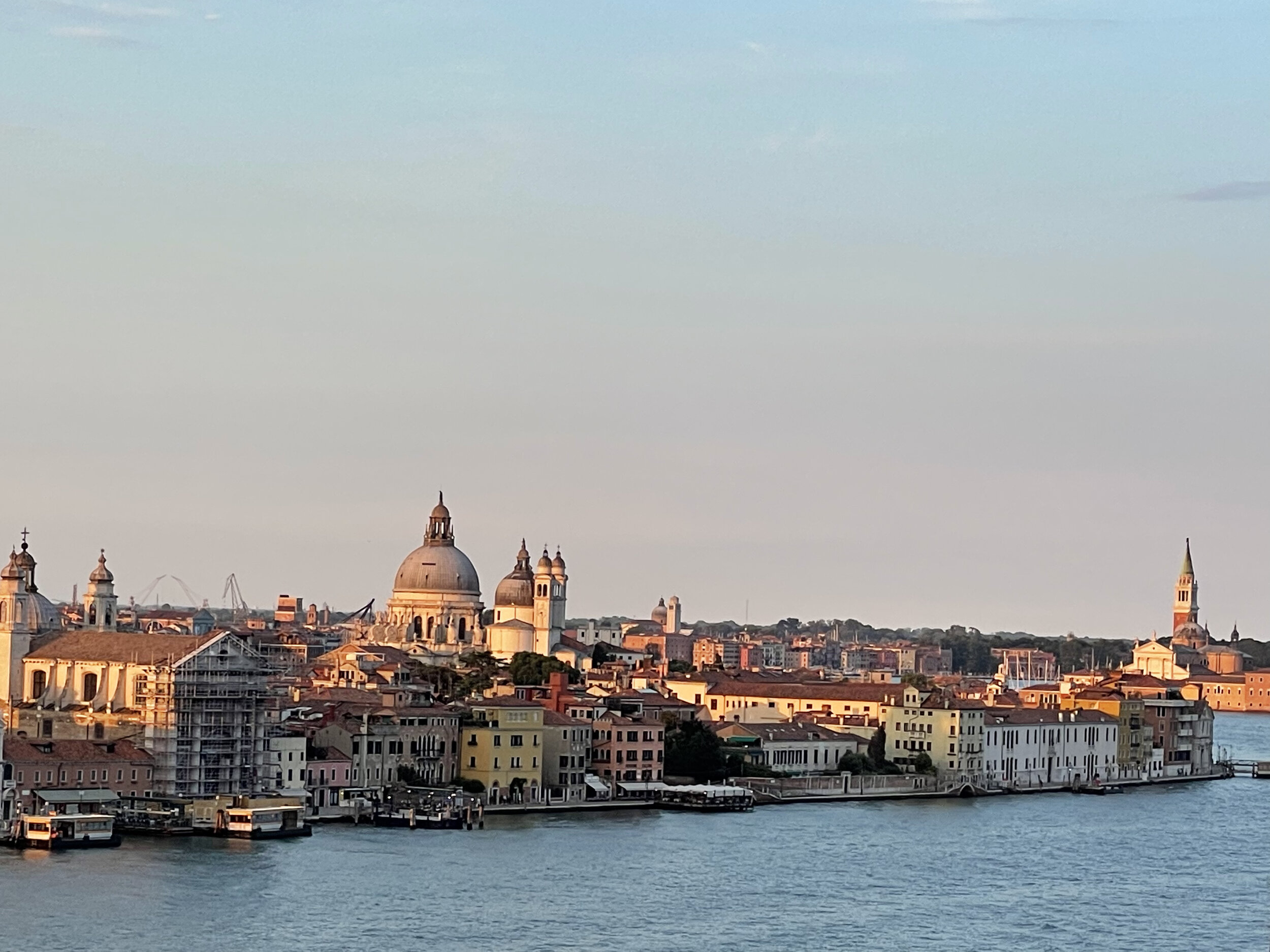Torcello, July 16 2021
The first Venice
People either love Venice or they hate it. In fact it’s been that way for the over 1,000 years of its existence, not just as a city but as a nation. Yet when you catch it on a warm sunny day, when the tourist level is low, maybe in the shoulder season; I defy anyone to be anything but enchanted. We were lucky to visit on a summer day where the pandemic restrictions culled down the hordes of visitors. No cruise ships, no groups following an umbrella, and but a few lucky Americans.
Venice on the quite side
Even before the city of Venice took shape as we know it, the nation of Venice existed for centuries. Slowly evolving over 1300 years from what was essentially a Roman refugee camp, into the empire that would last until Napoleon conquered it in 1797 without a shot. He was one of those who didn’t much care for Venice.
The shore of Torcello
Being a bit obsessed with the unique history of this country, I wanted on this trip to see where it all started, and so we grabbed a morning vaporetto and set out north into the lagoon to visit Torcello.
The way to the church, looking back at the Torcello boat dock
The ride is about 30 minutes and takes you past cemetery island, Murano, Burano and some very small islands that appear to have their own history based on their ruins. Only four of us got off the boat at Torcello and walked up the path to the cathedral. The area is well maintained, nicely paved in brick and surrounded by marsh grass and low fields. Here you have a glimpse of what the Rialto, the island that Venice is perched on today, looked like when folks first got there.
Getting around the islands the old way
When the refugees from the nearby mainland Roman towns were looking for safety, they came here first. Settling on the islands nearer to the shore, it was a place barely hospitable and difficult to reach. Perfect for avoiding barbarian soldiers who sought to plunder, rape, take slaves and just kill people wholesale, and probably in that order. However, following the Romans here was just not worth their effort, besides you needed boats and Attila didn’t exactly have a Navy. By the time Torcello became a bustling city, a smaller version of what Venice looks like today, the people of the lagoon had already begun to coalesce with a shared raison d’etre. They were first led by the Church and then by a long line of Doges. A nation emerged fueled by commerce, salt production and ample fishing, and oh by the way with a Navy, which was once one of the most powerful in the Mediterranean.
Bridge on the path to the Church
Santa Maria Assunta Torcello
The Bell Tower of Santa Maria Assunta
In 810 AD, after fighting off King Pepin and Franks, Doge Agnello decided that they needed a bigger moat, so to speak. He led them to the island that now is the city of Venice and they moved everything from Torcello, including building materials to develop the new center. As a result there is nothing left in Torcello, except some recovered archeological artifacts and it’s great church, Santa Maria Assunta. I guess you don’t just pick up and move cathedrals. The giant church with an imposing tower was first built in 640 AD and then like so many other ancient Italian churches was repaired and expanded over the years. You can see the oldest part in the baptistery and where it expanded to newer sections in the main building. Newer like from the 1300’s. We couldn’t get inside as it’s being restored at present, but plan to try again when the work is complete and maybe spend a night there. The island has some nice looking B&B options and several trattorias too choose from.
Ponte di Diavolo Torcello
Garden with early artifacts near Santa Maria Assunta
Some of the few pieces of old Torcello left behind
We spent the balance of our stay back in Venice, walking the back streets, looking for dinner options and hoping to discover a nice spot for a cocktail. We had some success, and I would recommend Hosteria da Franz for dinner, the Hilton rooftop bar for an aperitivo and a small place with great drinks and music called the Bra’s Cocktail Bar near Saint Marks for a late night cocktail
View from the Hilton roof bar toward the Grand Canal
Looking West down the Giudecca Canal












